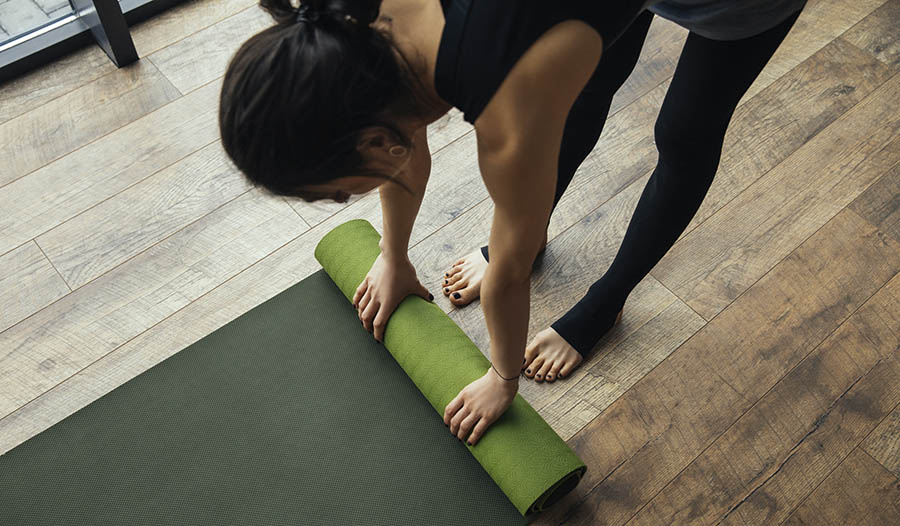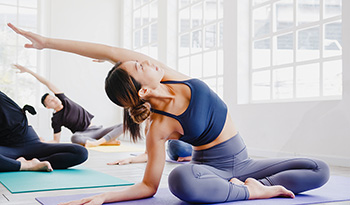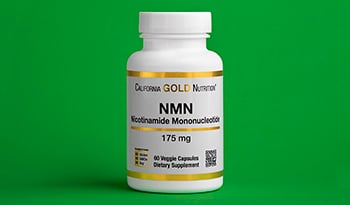Как да увеличите ползите от практиката си по йога

Йога е повече от форма на упражнения, тя е начин на живот. Интегрирана система, разработена в Северна Индия преди повече от 5000 години, йога може да преобрази тялото, ума, сърцето и духа. Думата йога идва от санскритското произведение yuj—означаващо свързвам или впрягам—и често се превежда като “съюз.”
Стилове на йога
Съществуват многобройни стилове на йога, които можете да опитате по пътя си към блаженството. Макар че всички те използват много от същите пози, наречени асани, всяка от тях има различен ритъм, структура и акцент.
- Хатха: Този нежен стил е най-разпространеният вид йога, преподаван на Запад. Учениците практикуват поредица от пози, които изравняват кожата, мускулите и костите и отварят каналите на тялото, подобрявайки потока на енергия.
- Анусара: Създадена от Джон Френд през 1997 г., анусара набляга на подравняването и насърчава учениците да отворят сърцата си и да изразят напълно себе си.
- Айенгар: Разработен от Б.К.С. Айенгар, този стил също се фокусира върху подравняването и включва реквизит, който позволява на учениците да изпълняват позите правилно. Въпреки че бавната форма няма да повиши сърдечния ви ритъм, тя е психическо и физическо предизвикателство и е чудесна за хора, които се възстановяват от травма или искат да разхлабят стегнатите и болезнени мускули.
- Гореща, Бикрам или Гореща енергия: Обичате да се потите? Тогава тези стилове, които следват специфична последователност от пози, практикувани в отопляемо студио (80-100 градуса по Целзий), са за вас.
- Виняса или Поток: Искате разнообразие и аеробика? Опитайте виняса. Преподавателите използват плавни пози, наречени поздрави на слънцето, които загряват, подравняват и укрепват цялото тяло, като същевременно повишават сърдечния ритъм. Често се пуска музика и се набляга на връзката между движението и дишането, за да се предизвика осъзнатост.
- Възстановяващ или Ин: За да се отпуснете, да намалите стреса и да раздвижите стегнатите мускули, опитайте възстановителна или ин. Опорите (блокове, одеяла и възглавници) осигуряват опора в пасивна поза за дълъг период от време, като позволяват на тялото да си почине и да се подмлади без особени усилия.
Ползи за здравето от йога
Всички стилове на йога имат многобройни физически и психически ползи и подхранват естествения стремеж на тялото към здраве и изцеление. Техниките за релаксация могат да намалят хроничната болка (болки в гърба, главоболие и артрит), да понижат кръвното налягане, да намалят стреса и да облекчат безсънието. Редовното практикуване може също така да изгради мускулна сила, да повиши енергията и жизнеността, да подобри спортните постижения, да предотврати наранявания и да повиши осъзнаването на тялото. Психическите ползи включват усещане за релаксация, центриране и повече спокойствие, внимание и позитивизъм.
Плавните, аеробни стилове (силови, горещи и виняса) изгарят калории и улесняват загубата на тегло. Стиловете, които наблягат на по-дългото задържане на позите и удължаването на мускулите, като ин, насърчават гъвкавостта, облекчават сковаността и увеличават подвижността на ставите, особено на бедрата, гръбначния стълб и таза.
Добавки в подкрепа на йога практиката
Тъй като йога разглежда тялото като инструмент за подготовка на ума и подхранване на душата, приемането на хранителни добавки и правилното хранене е важно и ще осигури енергия и хранителни вещества за възстановяване на тъканите.
- Мултивитамини: Консумирането на здравословна, балансирана диета, състояща се от непреработена, нерафинирана, истинска храна, е едно от най-добрите неща, които можете да направите, за да подкрепите тялото си и практиката си по йога. Въпреки това, за да покриете всички нужди на организма си, приемайте ежедневно добри мултивитамини. Изберете пълноценна храна, която е по-полезна за организма от синтетичните продукти.
- Противовъзпалителни формули: Всяка форма на физическо натоварване, включително йога, може да предизвика възпаление. Консумацията на противовъзпалителни храни (плодове, зеленчуци, мазна риба и ядки), достатъчният сън, справянето със стреса и приемът на добавка за подпомагане на възпалението могат да помогнат. За да подпомогнете възстановяването на мускулите, търсете продукти, които съдържат съставки като антиоксиданти, джинджифил, алфа-липоева киселина, рибено масло и куркумин.
- Пробиотици: Чувствате се подути или небалансирани? Редовното практикуване на йога може да помогне, като прочиства, стимулира и подпомага храносмилането. Добрият пробиотик може също така да подобри здравето на червата, имунната система и цялостното благосъстояние.
- B12: Въпреки че не е задължително да се откажете от месото, за да практикувате йога, вегетарианските и веганските диети са популярни сред тези, които практикуват редовно. Избягването на месо може да доведе до недостиг на В12 - витамин, който се съдържа само в храните от животински произход и е от решаващо значение за енергийния метаболизъм. Ниските нива са често срещани и при хора над 50 години и могат да причинят слабост, умора и загуба на паметта.
- Коензим Q10: Подобно на витамин, CoQ10 се произвежда от организма и се съдържа в много пълноценни храни, включително месо от органи, сардини и фъстъци. Този антиоксидант предотвратява увреждането на тъканите, като неутрализира нестабилните молекули, наречени свободни радикали, и подпомага използването на кислород и производството на енергия.
- Етерични масла: Етеричните масла могат да подпомогнат йога практиката по много начини. Създайте си йога нагласа, като ароматизирате хармонично сандалово дърво, успокояваща сърцето роза или повишаваща яснотата розмарин. Ухание на жасмин, сладък портокал или лавандула може да повиши настроението и да помогне за балансиране на нервната система. За да облекчите болките в мускулите, напръскайте смес от розмарин, мента и канела етерични масла в комбинация с арника и кокосово масло. Смес от чаено дърво и лавандула , комбинирана с вода и малко бял оцет, може да се използва като дезинфектант за постелки за йога.
ОТКАЗ ОТ ОТГОВОРНОСТ:Този УЕЛНЕС ХЪБ няма за цел да поставя диагнози...

















































































 Съдържание
Съдържание















